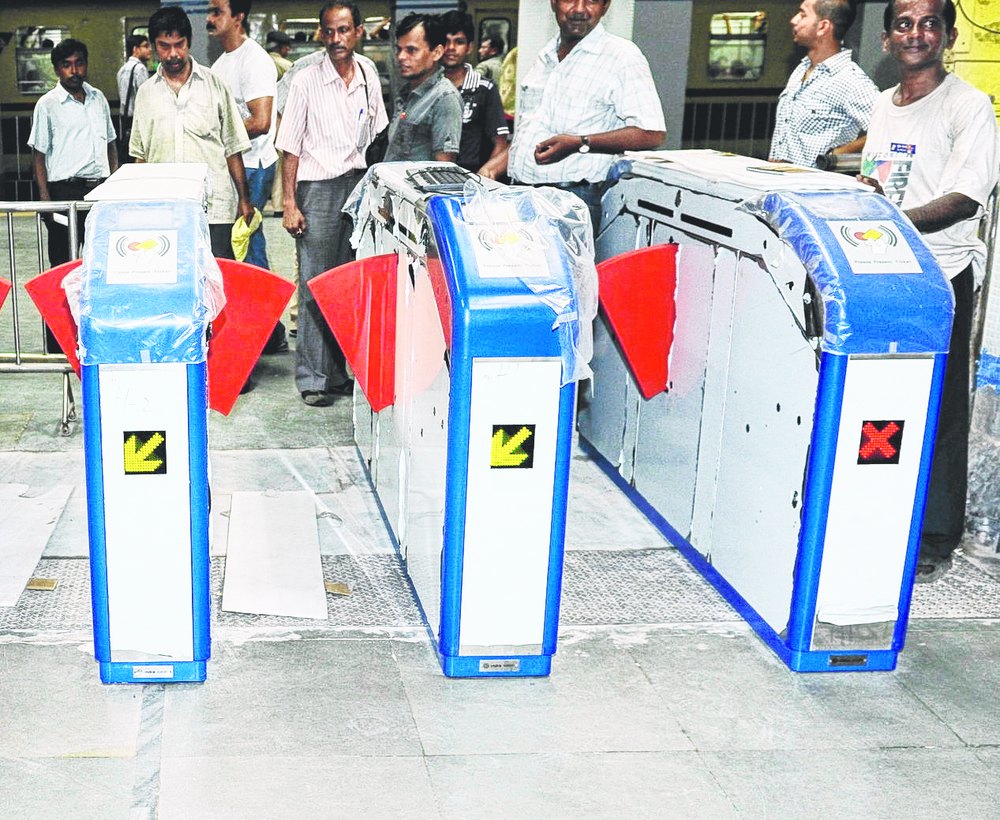
A seven-year-old boy got stuck between the flaps of a token gate at Kudghat Metro station this week when his mother tried to drag him past the barrier without buying a ticket, a habit more widespread than many parents would admit.
The incident occurred last Monday around 12.10pm, moments after the boy's mother had dropped her token in the slot and crossed over. The flaps closed between her seven-year-old son's hand before he could follow her beyond the gate.
All Metro stations have signs mentioning that children above five years of age need tickets to travel. But many parents don't find it embarrassing to ask their children to crawl under the gates or request Metro employees to let them pass.
The console of each flap gate has seven sensors that map a person from the time the token is inserted or the card punched till the time of exit.
"When flap gates were introduced in July 2011, they were in slow mode. The flaps would close three or four seconds after a person crossed. This was done to allow commuters to get accustomed to the new system. Now the flaps close within one or two seconds," an official said.
If two persons try to cross a gate, the sensor usually detects any such movement and closes immediately to stop unauthorised entry.
The mother of the boy who got stuck at a gate on Monday told the guards at Kudghat station that she had bought a token for him, which he inserted in the slot. The gate closed before he could get out because of some mechanical fault, she insisted.
The woman didn't lodge a complaint, though.
Doctors said the boy could have been severely injured in the incident. "A fracture is possible or a soft-tissue injury, depending on the force with which the flaps close. The severity of the injury would also depend on the affected area," orthopaedic surgeon Goutam Saha said.
Unlike adults, children have "elastic" bones that can absorb the shock of an external force. Adult bones tend to break rather than bend.
According to a station manager, many parents travelling with children up to eight years of age take it for granted that their kids can take a Metro train without tickets.
"These parents get their children to cling to them so that they can cross the gates with them. When we object, most passengers start to argue," he said.
Guards deployed at the gates often have mothers pleading with them to let their children travel without tickets.
The penalty for ticketless travel by the Metro is Rs 250 for each offence along with the maximum fare from the point of boarding the train to the station where the offender alights.
Psychologists say that often this kind of behaviour from parents creates confusion in a child's mind.
"Children are taught to be honest with their parents and, at the same time, made party to a dishonest act. Children are more than likely to believe that rules can be tweaked and it's okay to break them as well," said a psychologist associated with a reputable south Calcutta institution. "Any child who grows up seeing such acts would think one's conscience is flexible, depending on convenience. That's dangerous."











